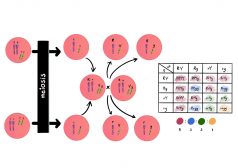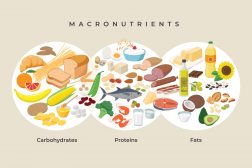Definition
noun, plural: detritivores
An organism that feeds on detritus or organic waste
Supplement
A detritivore pertains to any organism that feeds on detritus or organic waste. Its name is derived from being a detritus-feeder. In a biological context, detritus refers to the dead particulate organic material. It includes decomposing plants and animals as well as faeces.
In the food chain or an ecological pyramid, the detritivores are found at the topmost level. At the base is a group of organisms called producers that are capable of manufacturing their own food through biosynthesis (e.g. photosynthesis). They are exemplified by plants. The trophic level next to producers is a group of organisms that feed on organic matter, e.g. plants and/or animals. This trophic level is comprised of so-called consumers. Detritivores are on top trophic level, consuming detritus and decaying dead plant and animal parts. Detritivores and decomposers are most of the times used interchangeably. However, others do not consider all decomposers as detritivores. Accordingly, detritivores in a stricter sense are those that ingest lumps of matter in contrast to other decomposers such as bacteria and fungi that absorb and metabolize detritus.
Examples of detritivores include millipedes, woodlice, dung flies, many terrestrial worms and burying beetles. By consuming dead organic matter they speed up decomposition by increasing the surface area available to saprophytic bacteria.
Word origin: Latin dētrītus (“the act of rubbing away”), from dēterō (“to rub away, to rub off, to wear out”)
Synonym(s):
- detrivore
- detritophage
- detritus feeder
- detritus eater
- saprophage
See also:







